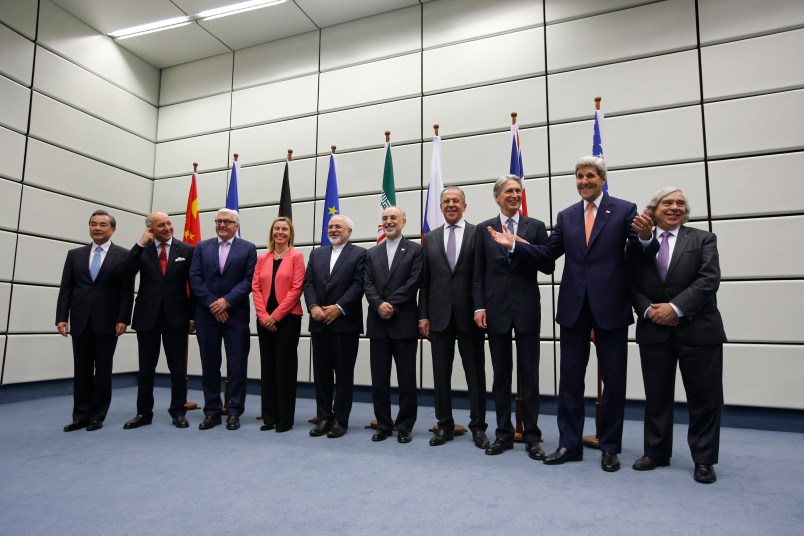With an actual deal, with definitive text and conditions, now in place, I wanted to share a few initial reactions. I have not seen all the details and many of them are technical and not ones I’m well-suited to judge. To get a general sense of my take on the equities and stakes involved, see this exchange I did with David Frum back in April. This was on the basis of the tentative agreement. But most of the discussion remains as relevant today as it was then.
There are many things to say. But here’s the one I want to focus on for the moment. As I said, many of the issues involved in these deals are technical. And as much as people pretend otherwise, most of us are dependent on technical experts to make sense of who got the better of different compromises. With that said, at a basic level I trust the people negotiating on the U.S. side, subject of course to hearing anything over the coming days that gives me some reason to rethink that assumption.
But here’s the thing to remember. We’re going to hear a lot about how this is a terrible deal, how the Iranians got the better of us, how it will benefit Iran in this way and that, how allies don’t like it, how we need to stand tough and not be naive, etc. etc. etc.
The Bush administration decided it wasn’t going to go along with the Clinton administration’s naive, give-away-everything negotiations with North Korea. The Bush team, particularly the first term team, decided they were going to hang tough and not be patsies for the North Koreans. And now North Korea is a nuclear state with a number of nuclear weapons. Maybe that would have happened had the Democrats won in 2000 too. But it did happen under the hang tough crowd.
There’s a lot of Iran pony thinking going on about what would be cool if we could have everything we want. But as much as I fear what a Republican president might do on the Iran front, I think going to war with Iran is highly unlikely. Stiffening sanctions won’t happen because even if we stiffened sanctions, Europe and Russia and China won’t. So all the folks saying it’s not good enough or it’s a disaster or whatever else are basically saying we should hang tough and let the Iranians do whatever they want. Indeed, adopt a maximal line of confrontation short of war, which will empower hardliners and make it more likely the Iranians will take the step from being a nuclear threshold state to an actual nuclear weapons state. It is the elevation of self-satisfaction over tangible results and reality.
Now, with all that said, it’s still conceivable that the opponents are right and that the U.S. negotiators, if they were more hard core, manly, resolute, tough, and ass-kicking could have gotten a dramatically better deal. Could be. Who knows? It’s impossible to disprove such a claim since it’s a claim you can always make. But in the same way that the U.S, has to deal with the on-the-gorund realities in the Middle East when making policy choices, I have to deal with the options on offer. I can’t just invent my preferred solution out of the realm of my own fantasies. I have the ability to evaluate the terms as well as I am able and make a basic judgment about whether I find the supporters or the critics more credible and more level-headed about the choices we face. On that latter front, there’s really little to discuss or consider.






